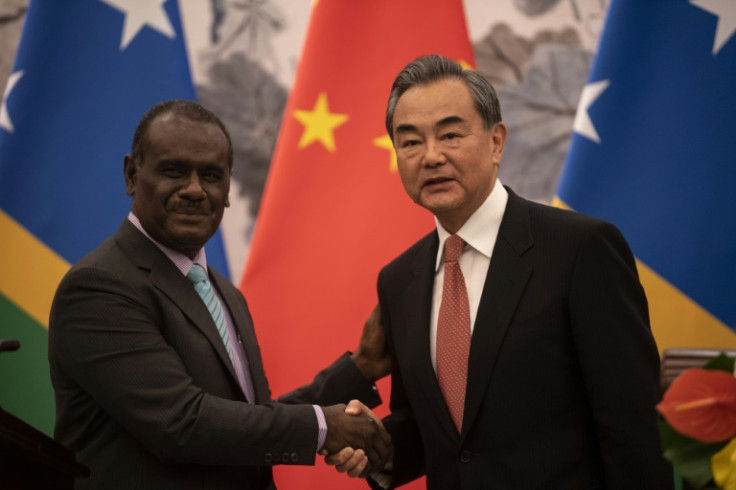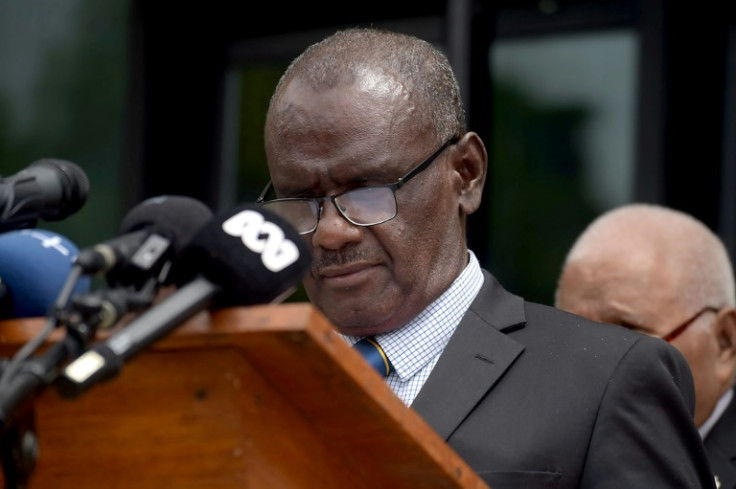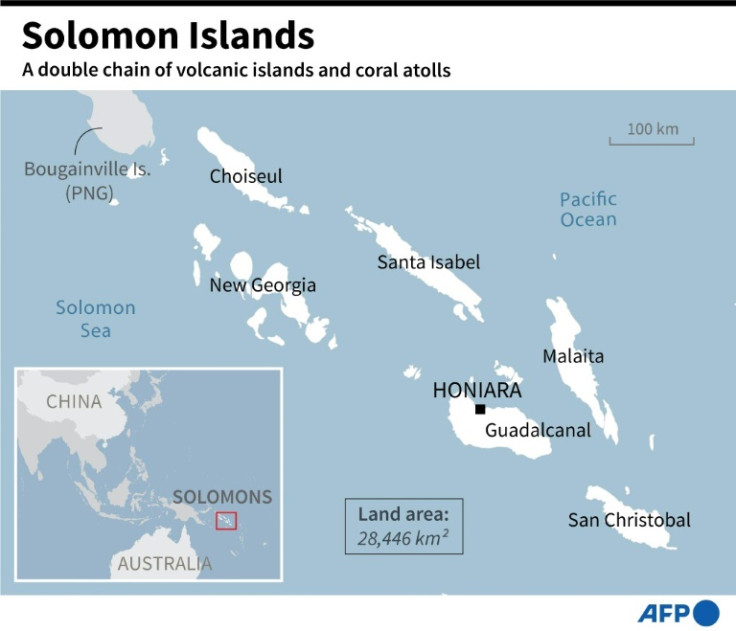China-friendly Manele Elected As Solomon Islands PM

Solomon Islands' lawmakers elected China-friendly former foreign minister Jeremiah Manele as prime minister on Thursday, choosing him over an opposition leader intent on curbing Beijing's reach in the Pacific nation.
Manele won 31 votes in a secret ballot of 50 MPs, said Governor-General David Vunagi, the climax of a national election that will resonate in Beijing, Washington and across the South Pacific.
His opponent, democratic reformer and longtime opposition leader Matthew Wale, got 18 votes.
Squads of police patrolled the parliamentary grounds as MPs voted inside, warding off unrest that has plagued past elections.
"The people have spoken," Manele said, praising the fact that there was no violence.
"We have shown the world today that we are better than that."
Pacific watchers expect Manele to persevere with the archipelago's recent embrace of China, albeit with less bluster than his predecessor Manasseh Sogavare.
A career diplomat before entering politics, Manele was foreign minister in 2019 when Solomon Islands turned its back on Taiwan and established diplomatic ties with Beijing.
Incumbent Sogavare withdrew from the contest earlier this week after failing to secure an election majority.
Sogavare's popularity had waned during his latest term as premier, and his leadership was increasingly seen as divisive and heavy-handed.
Manele vowed a "government of national unity" that would focus on improving the economy and "progress on our road to recovery" after the COVID-19 pandemic.
Solomon Islands, a nation of around 720,000 people spread over hundreds of islands and coral atolls, is one of the poorest countries in the world.
Although Manele is unlikely to reverse the government's position on China, traditional partners such as Australia and the United States should find him easier to work with.
Australian Prime Minister Anthony Albanese said he looked forward to working with Manele.
"Australia and Solomon Islands are close friends and our futures are connected," he posted on social media platform X.
New Zealand Foreign Minister Winston Peters said he was pleased to continue the "strong partnership" between the nations.
Manele flagged a value-added tax and said new rules around the use of national resources would be at the top of his agenda.
Extractive industries such as logging and fishing are the bedrock of the Solomon Islands' economy and often exert an outsize influence on its politics.
It remains to be seen whether Sogavare -- one of the nation's most consequential leaders -- will take a senior role in the new government.
Sogavare was standing behind Manele as the prime minister accepted his new post on Thursday.
"There are questions over whether Sogavare will look to exert influence behind the scenes," Australian National University Pacific expert Graeme Smith told AFP.
"Manele is not the forceful character that Sogavare is."
Sogavare has overseen the rapid expansion of Chinese interests across the archipelago.
He signed a security pact with Beijing in 2022 that set alarm bells ringing in Western capitals, and he harboured a deep distrust of Australia and the United States.
"I don't think there will be any notable shift in policy," said Smith.
"Although, of course, there will be a shift in tone."
Opposition leader Wale is a former accountant who pledged to reform the nation's creaking democratic institutions, which have long been clogged with corruption.
He has condemned the China security pact and accused Sogavare of selling out Solomon Islands to keep Beijing happy.


© Copyright AFP 2025. All rights reserved.



















